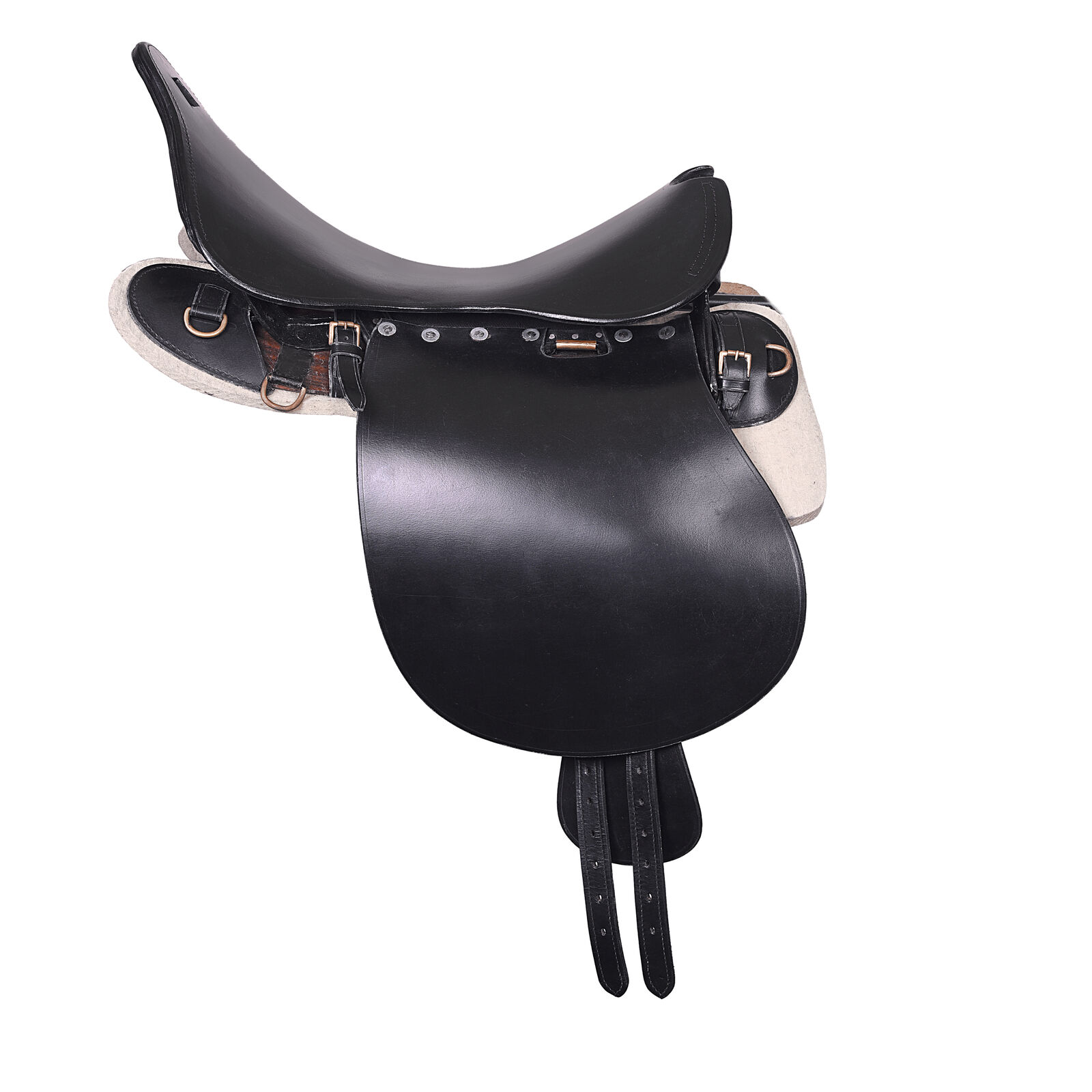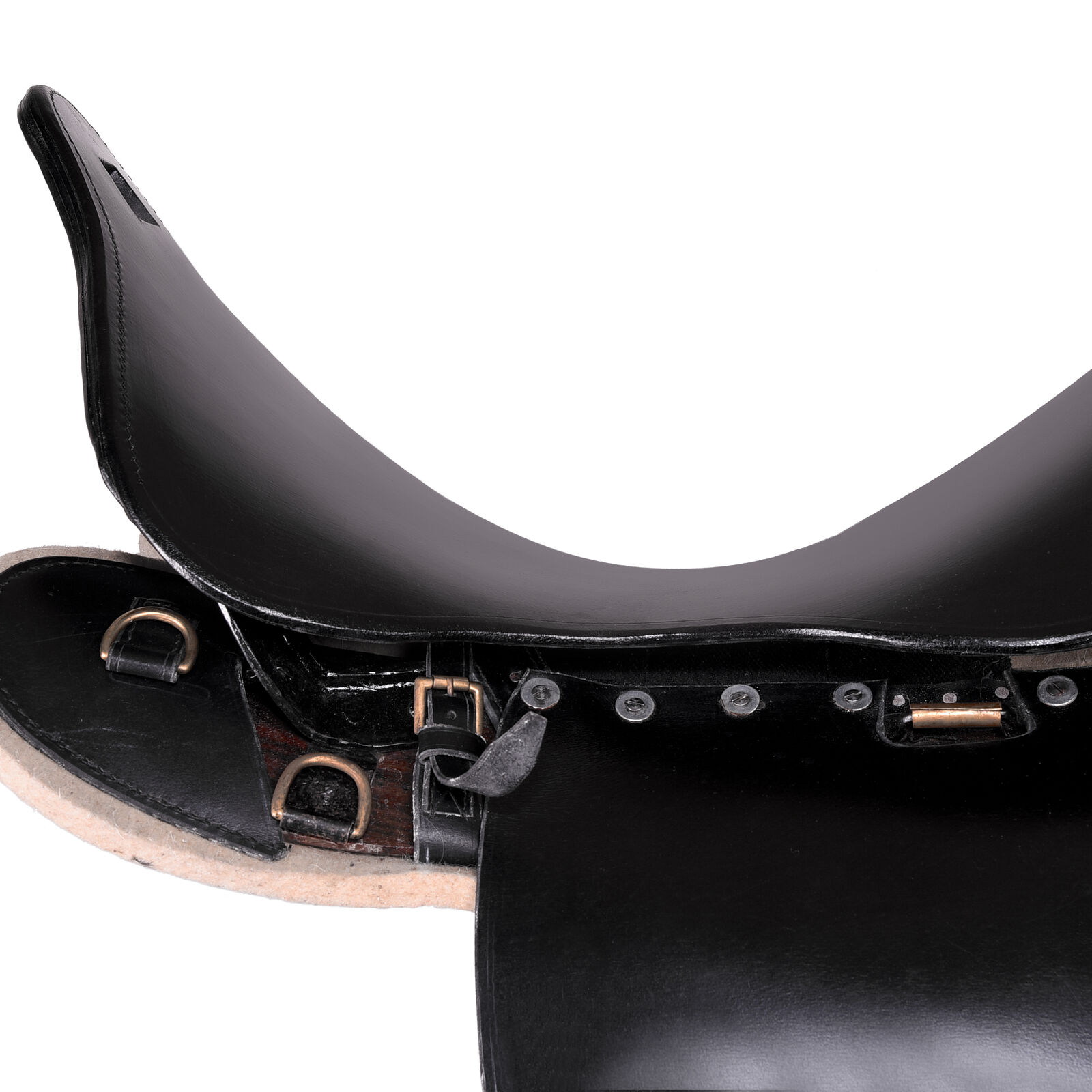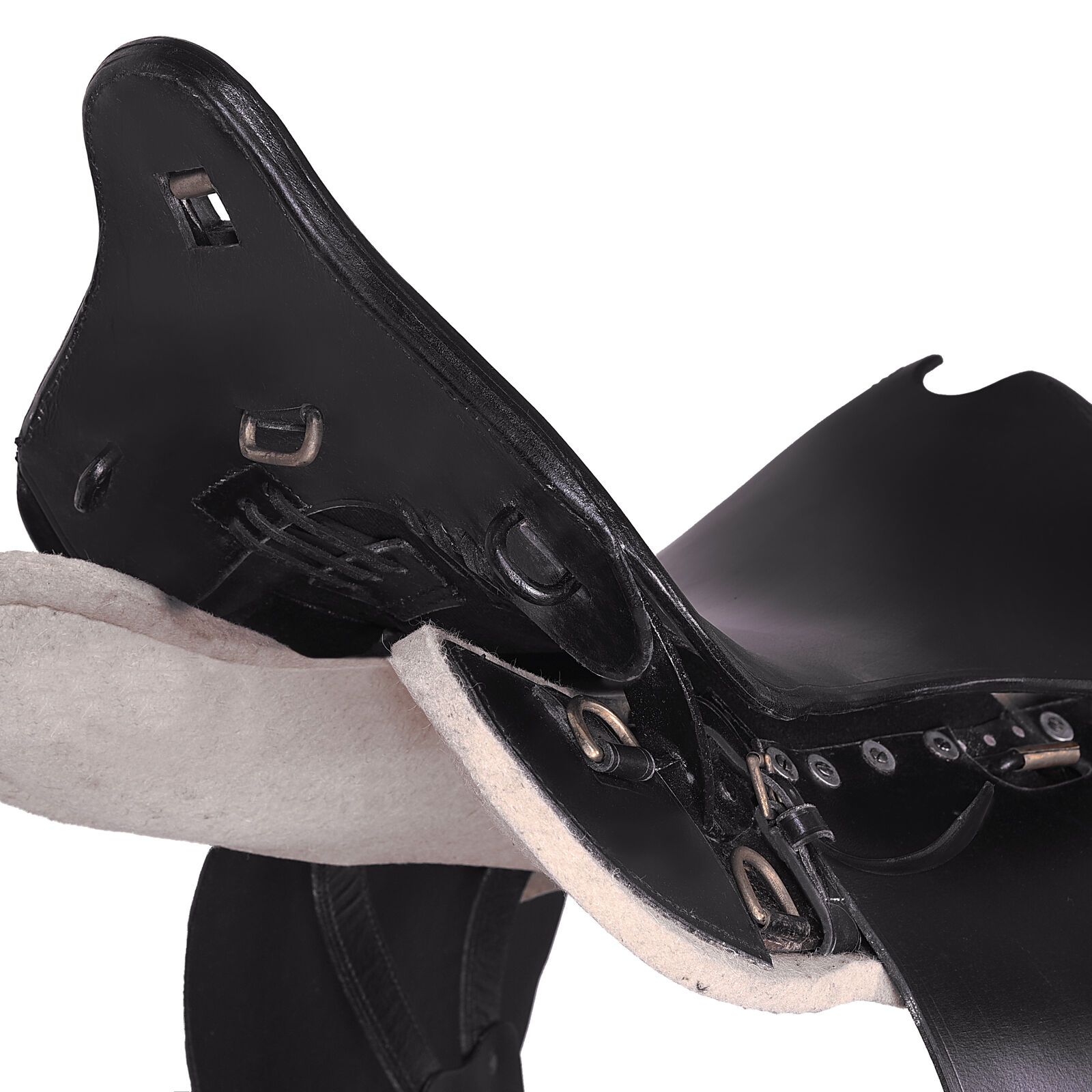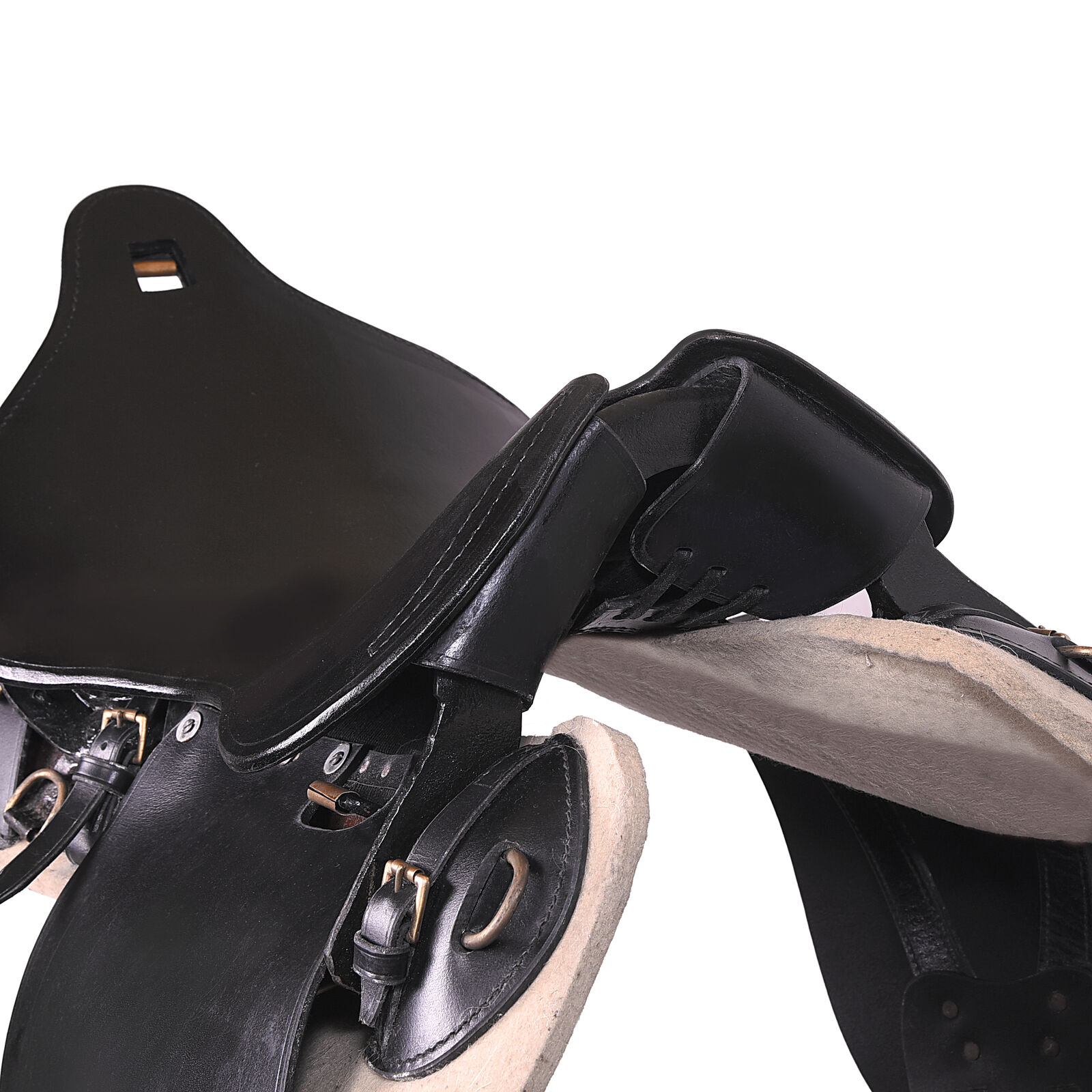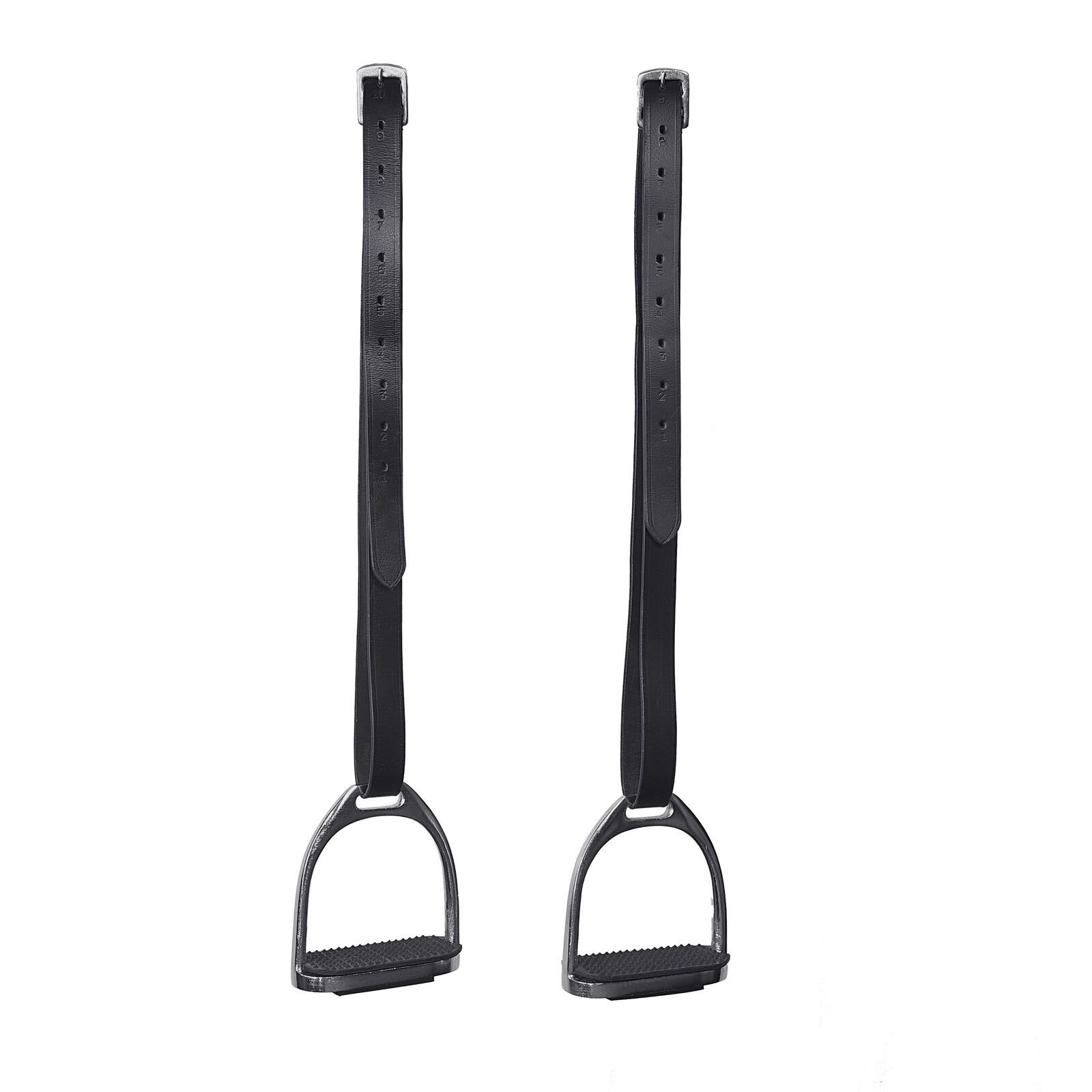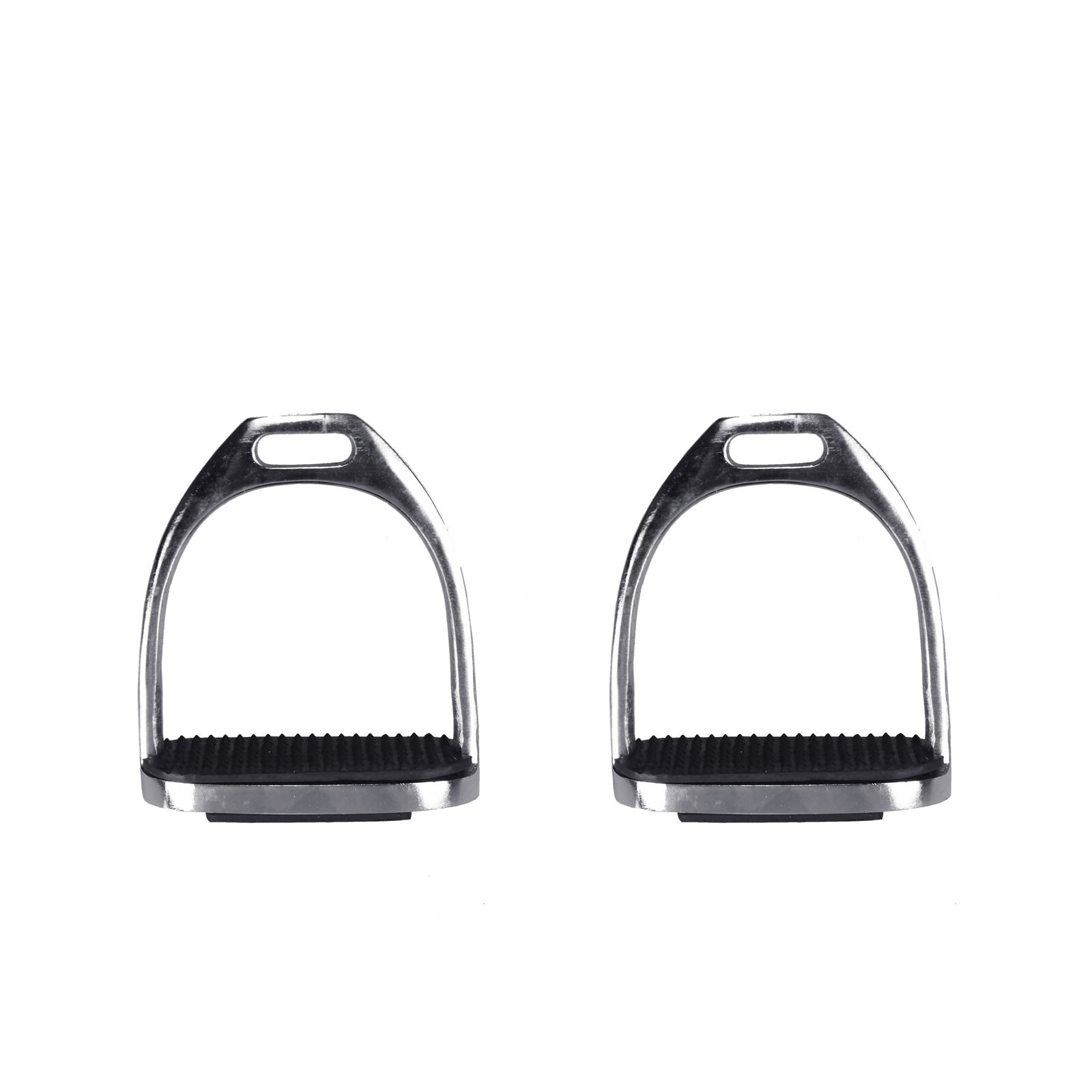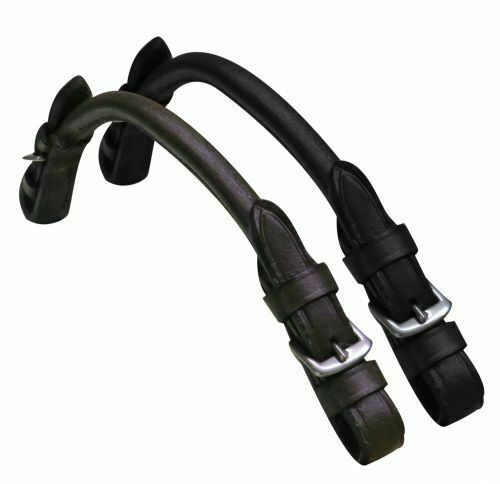-40%
1902 Universal Pattern British Military / Trooper Saddle - Leather K430
$ 175.05
- Description
- Size Guide
Description
1902 Universal Pattern British Military / Trooper Saddle - Leather K430Made from 100% Pure leather. Saddle includes Girth with Heavy Duty Buckles with rollers Stirrup Leathers Stirrup Irons and Pads. This is the saddle issued to and used by all RMP riders for daily Police Duty use. The pattern of the saddle has not changed since its initial design and implementation within the British Army in 1902. As well as a girth (the strap that attaches to both sides of the saddle and runs under the horses chest, the military saddle also comes equipped with a Surcingle. This runs over the top of the saddle, through loops on either side of the girth, and fastens under the horse with a single buckle. It's a safety girth in practice, just in case the girth snaps during arduous events such as a cavalry charge during a battle.
KINDLY CONTACT US IF YOU HAVE ANY PROBLEM.
WE VALUE YOUR FEEDBACK.
FREE Shipping with FEDEX / DHL !!!
Thanks for Visiting US !!!
Disclaimer:
Custom Policy
Import duties, taxes and charges are not included in the item price or the shipping charges. These charges are the buyer's responsibility. Please check with your local customs authority to determine these additional costs prior to bidding or buying. These charges are normally collected by the delivering freight (shipping) company or when you pick the item up — please do not confuse them for additional shipping charges. Indian merchants are unable to mark merchandise values below actual purchase price or mark international parcels as "gifts" — Indian and international government regulations prohibit such practices.

